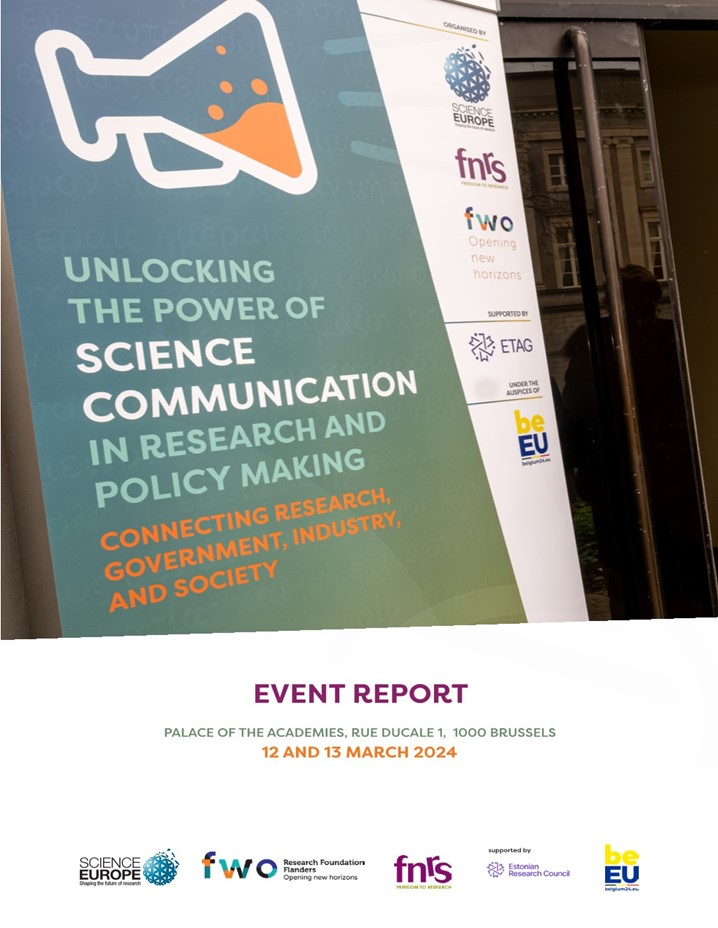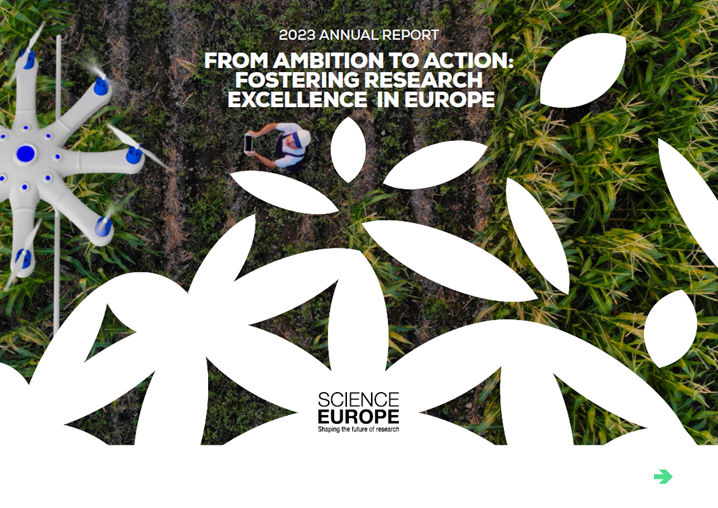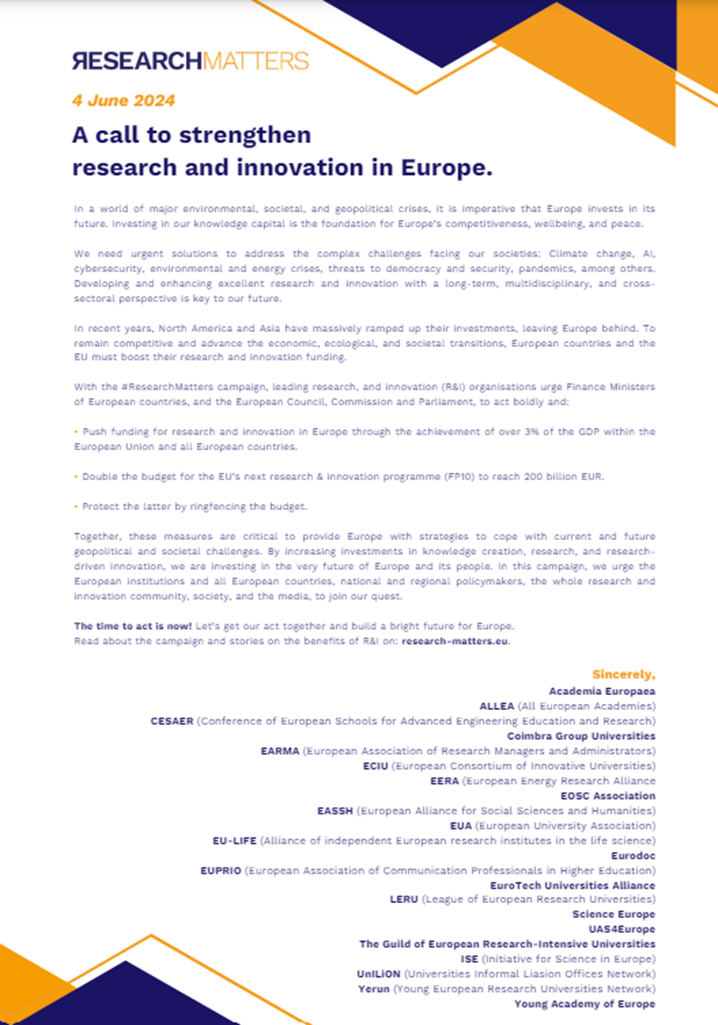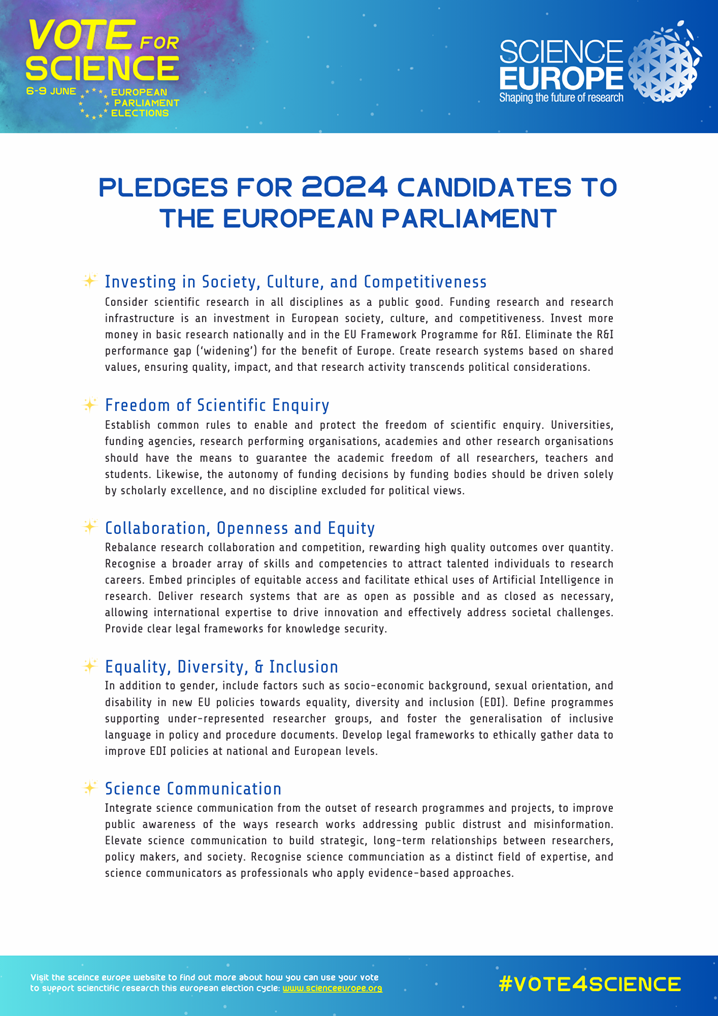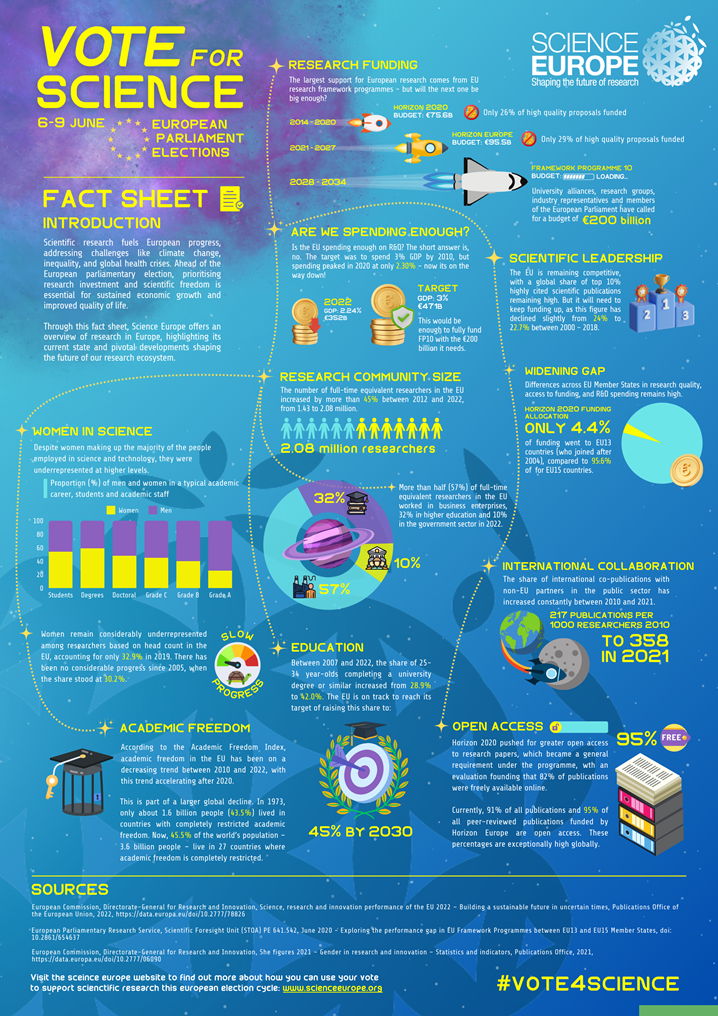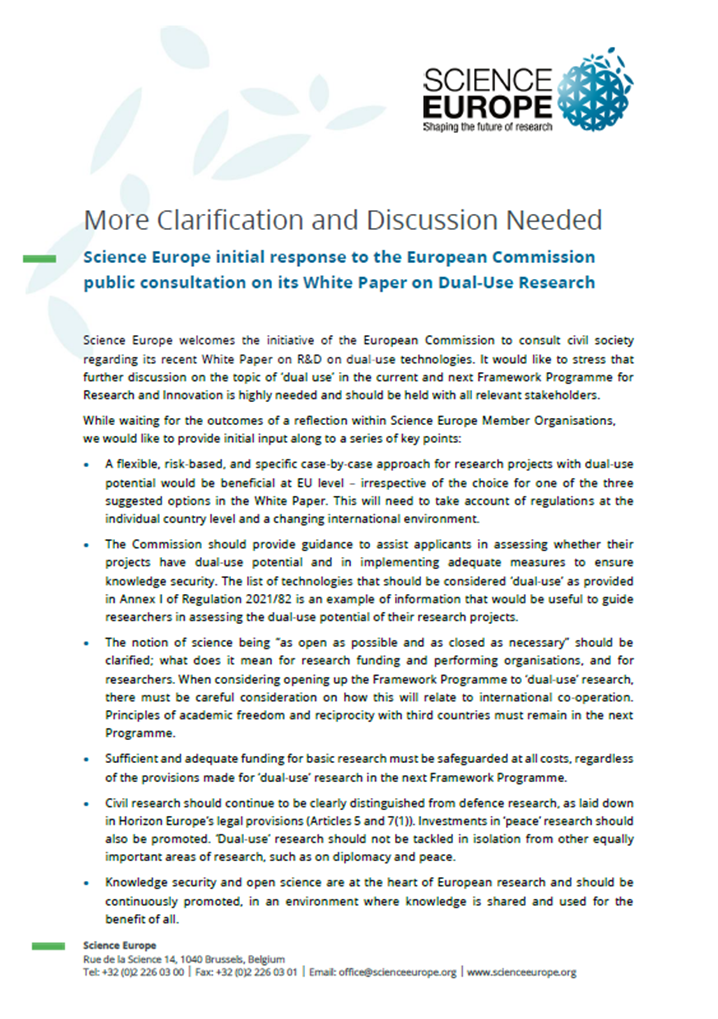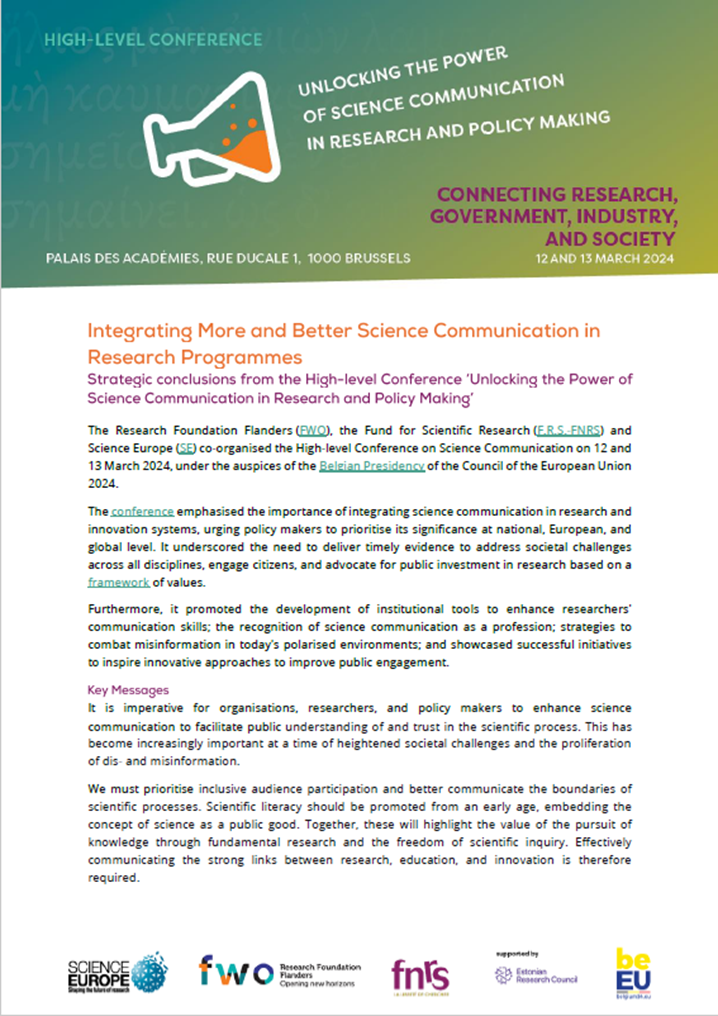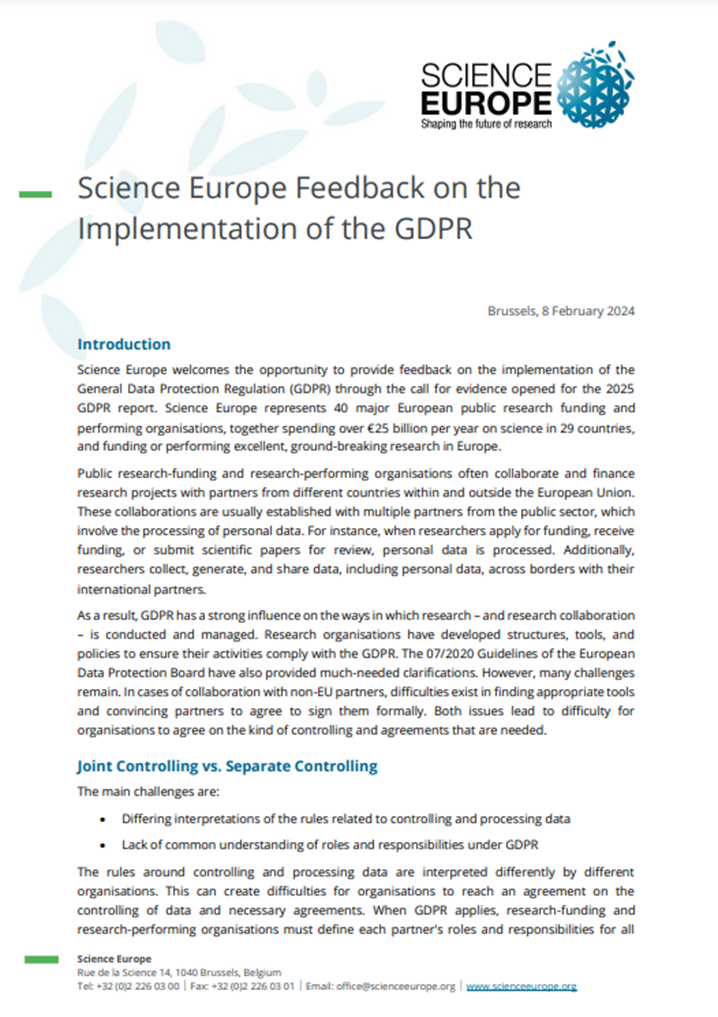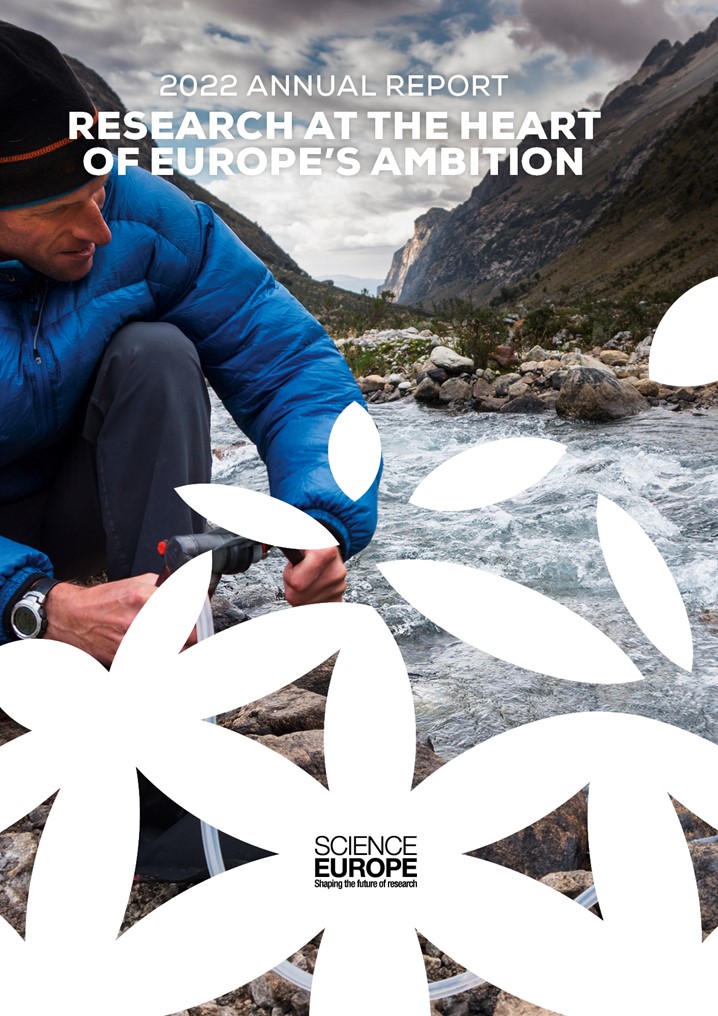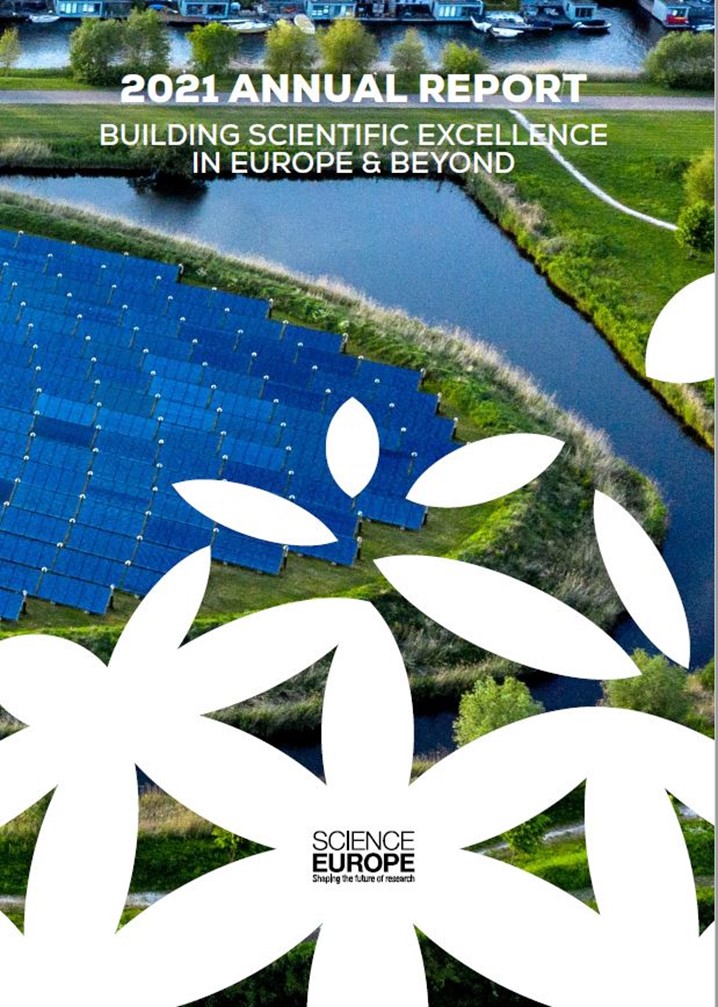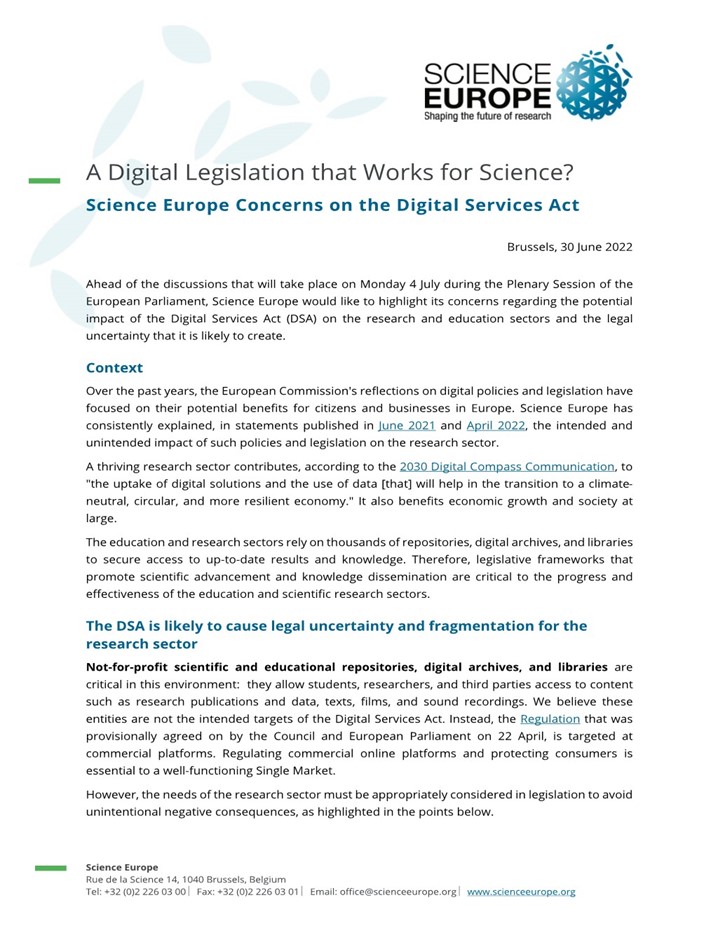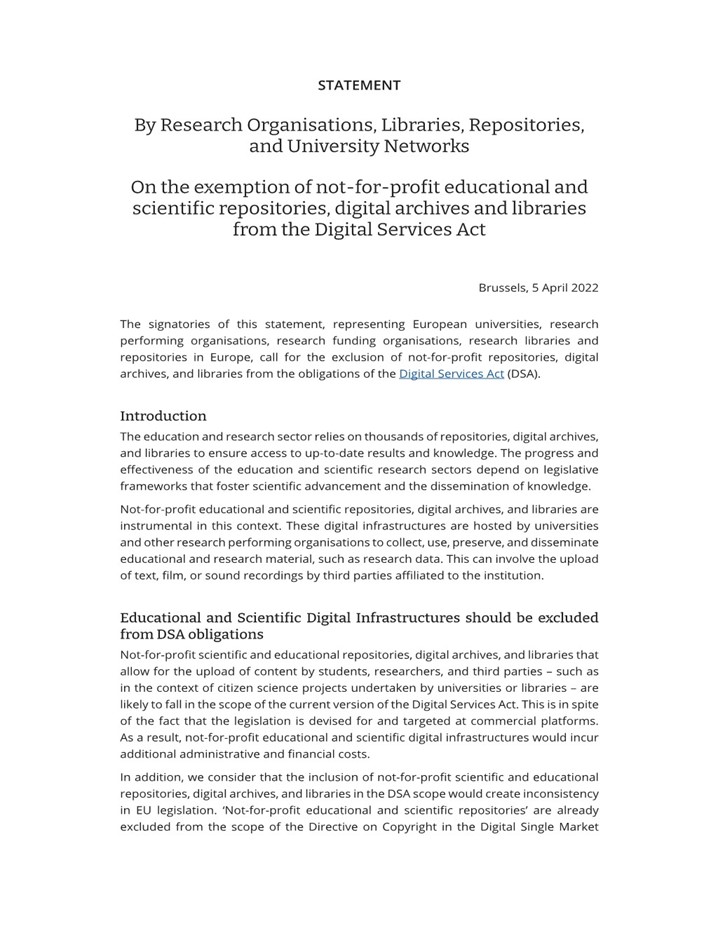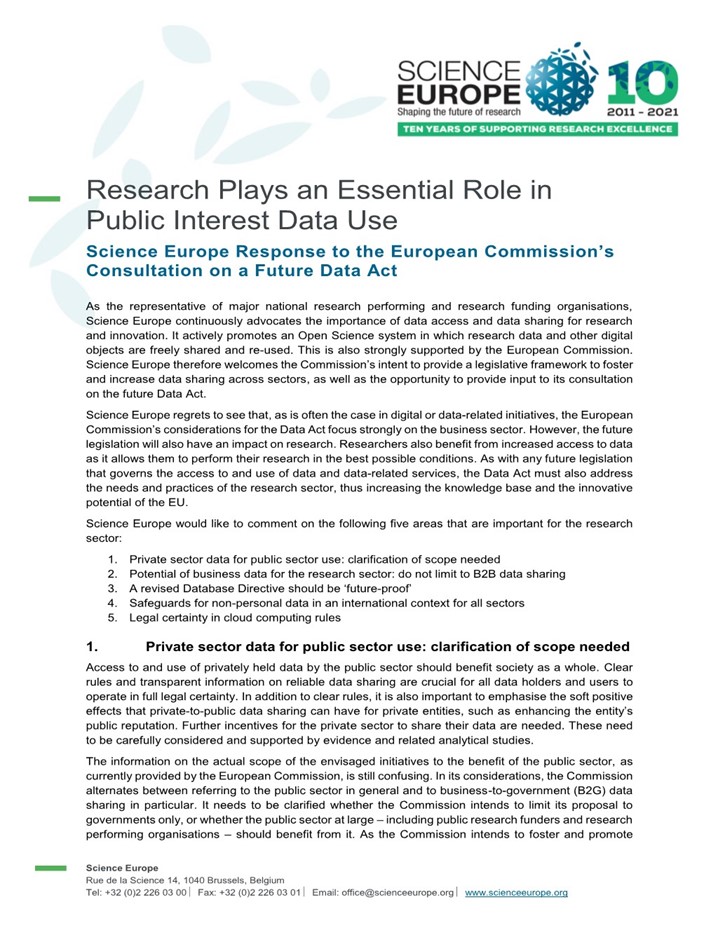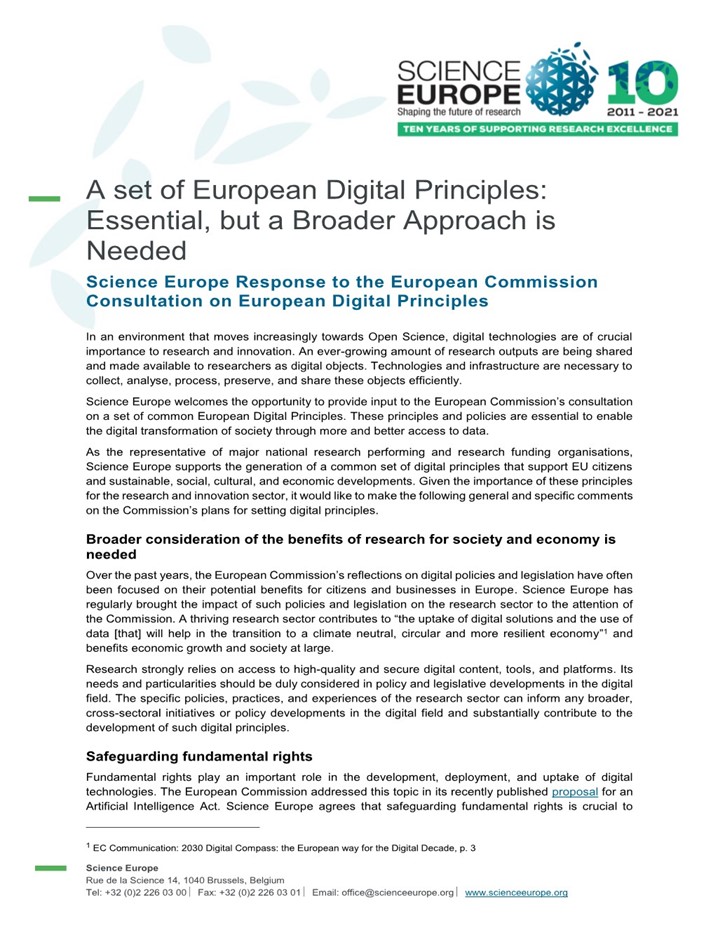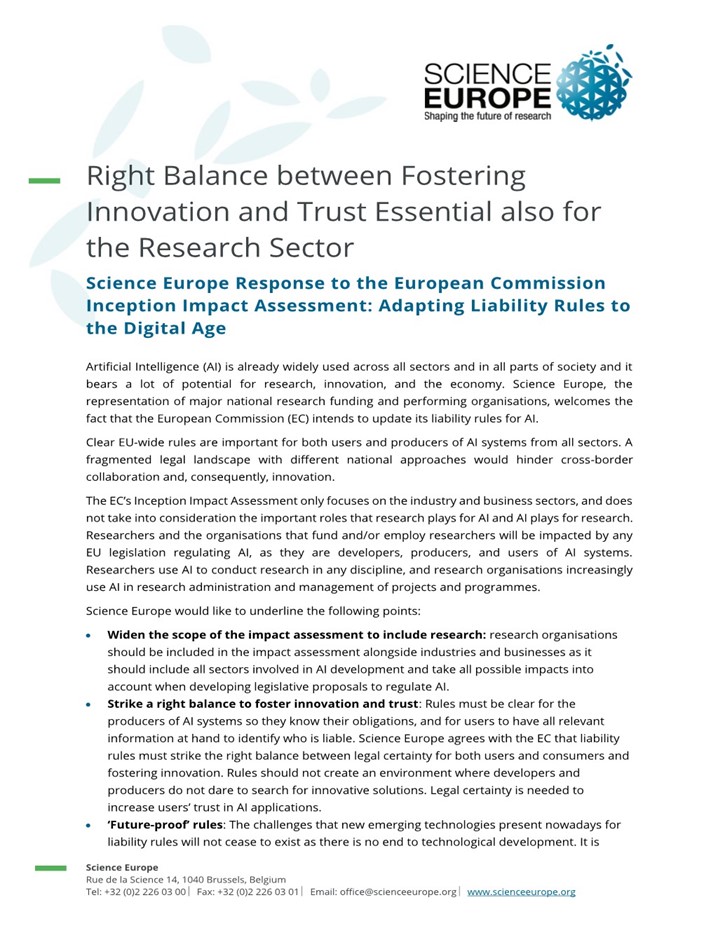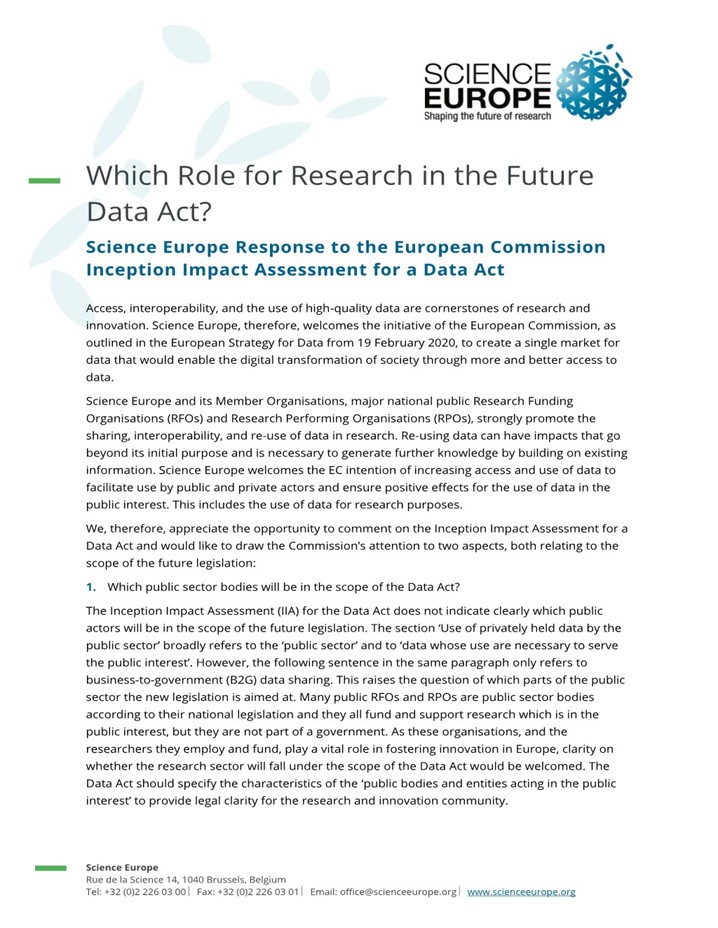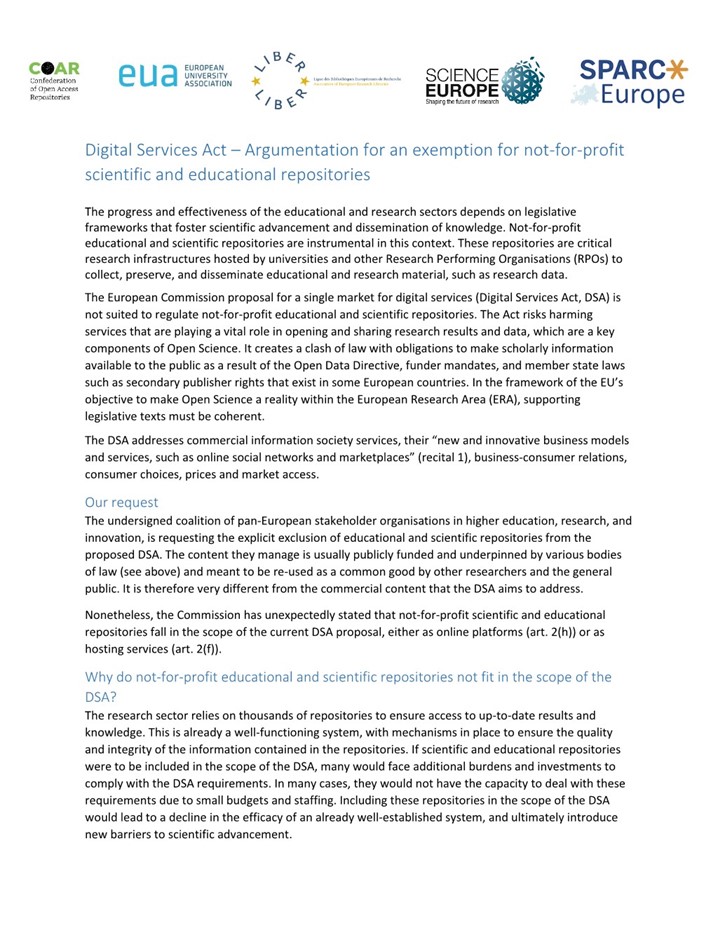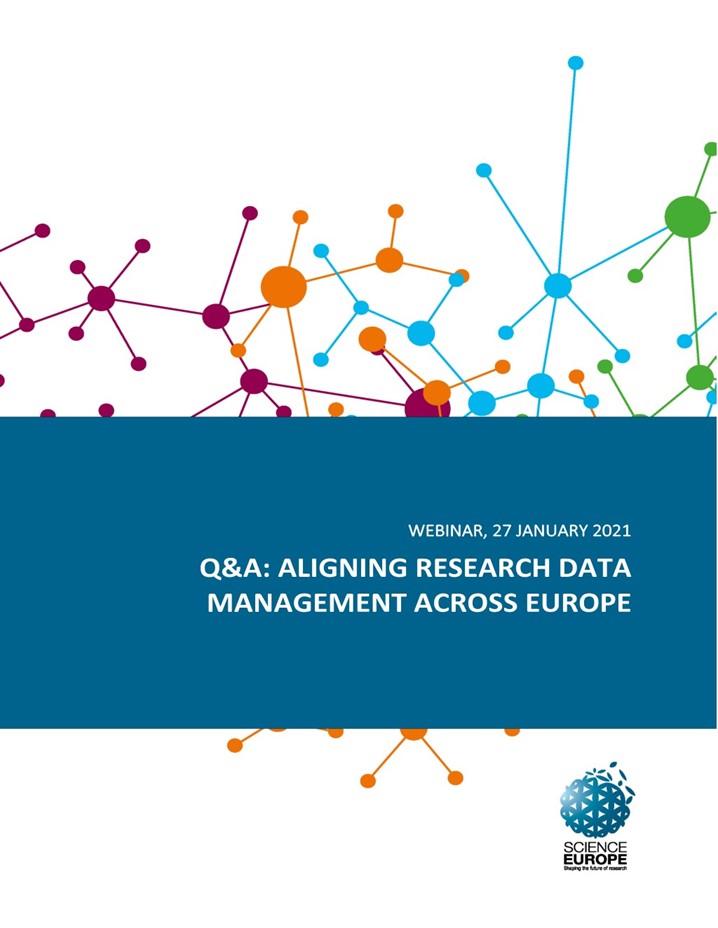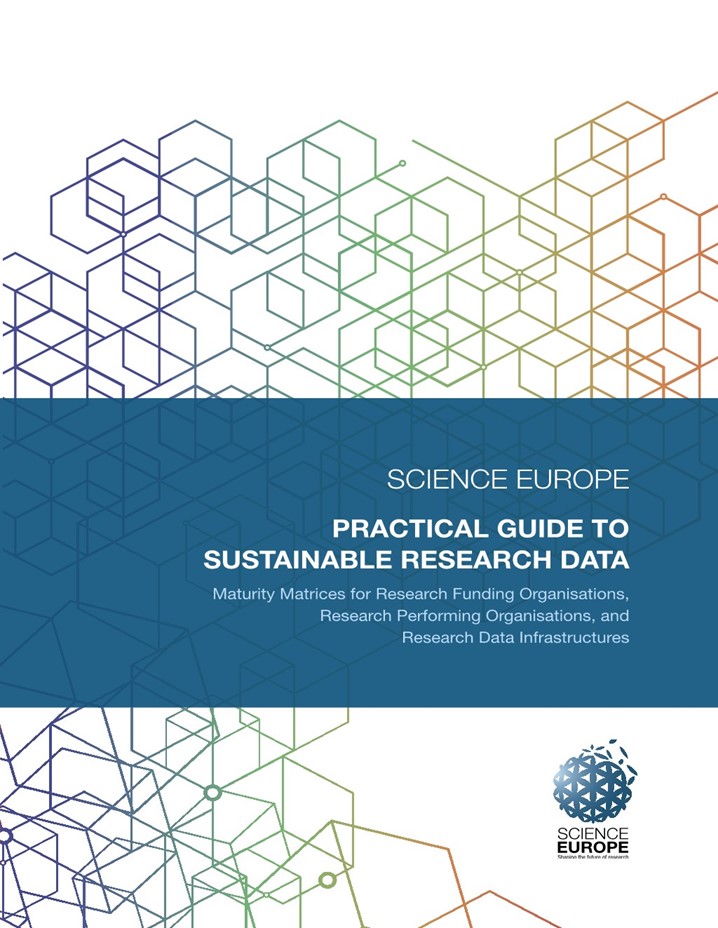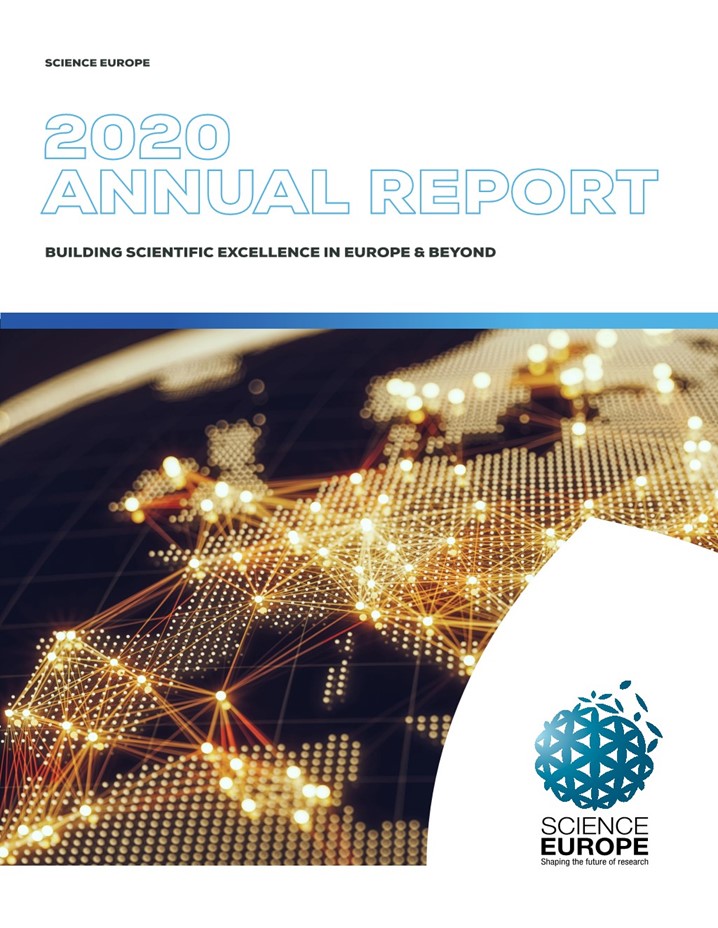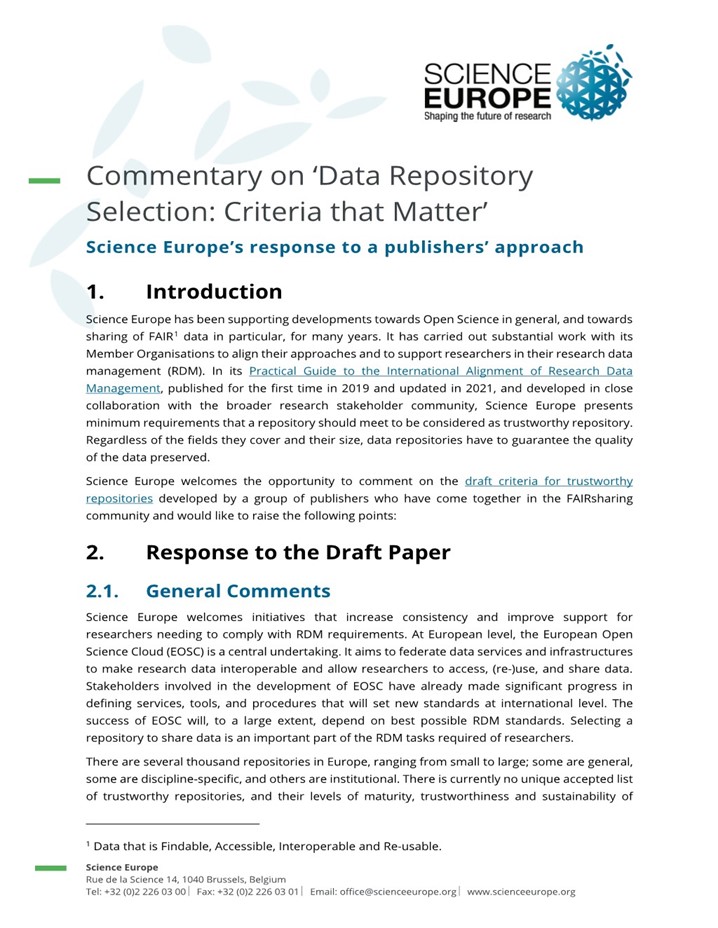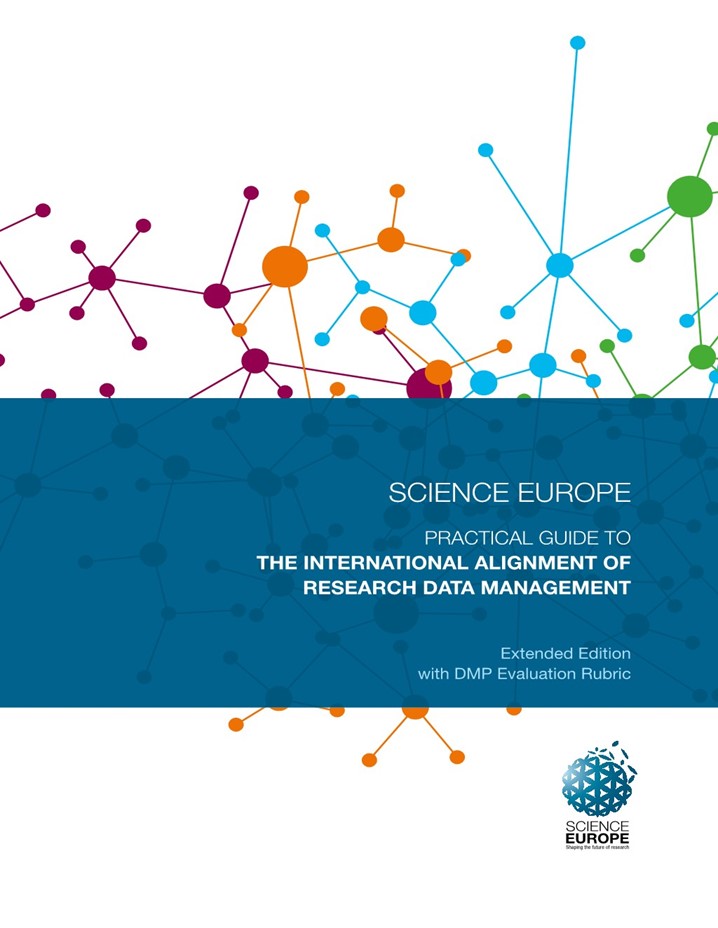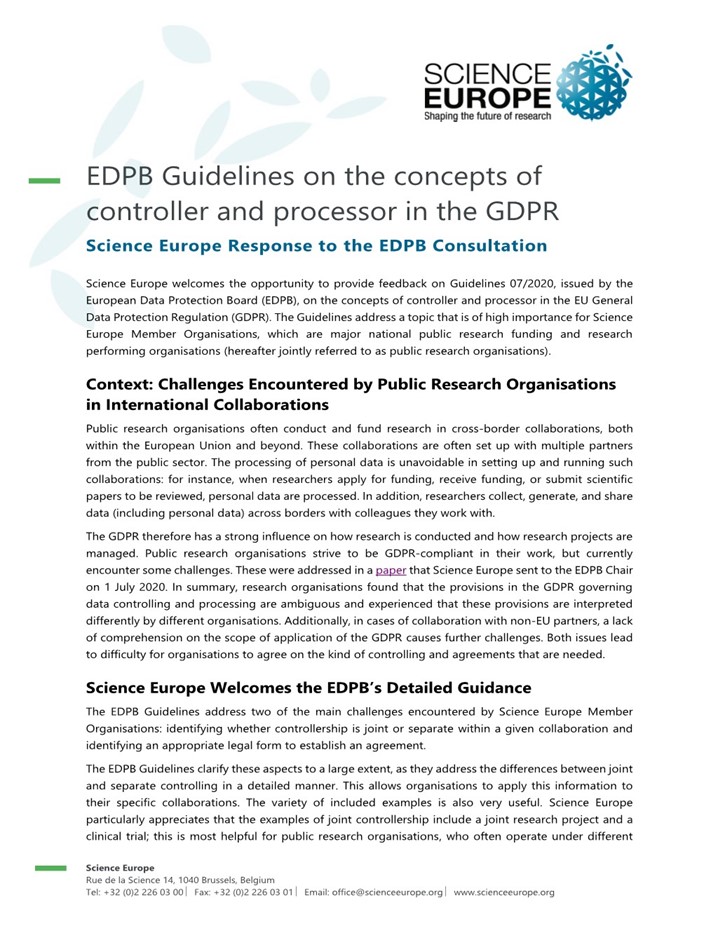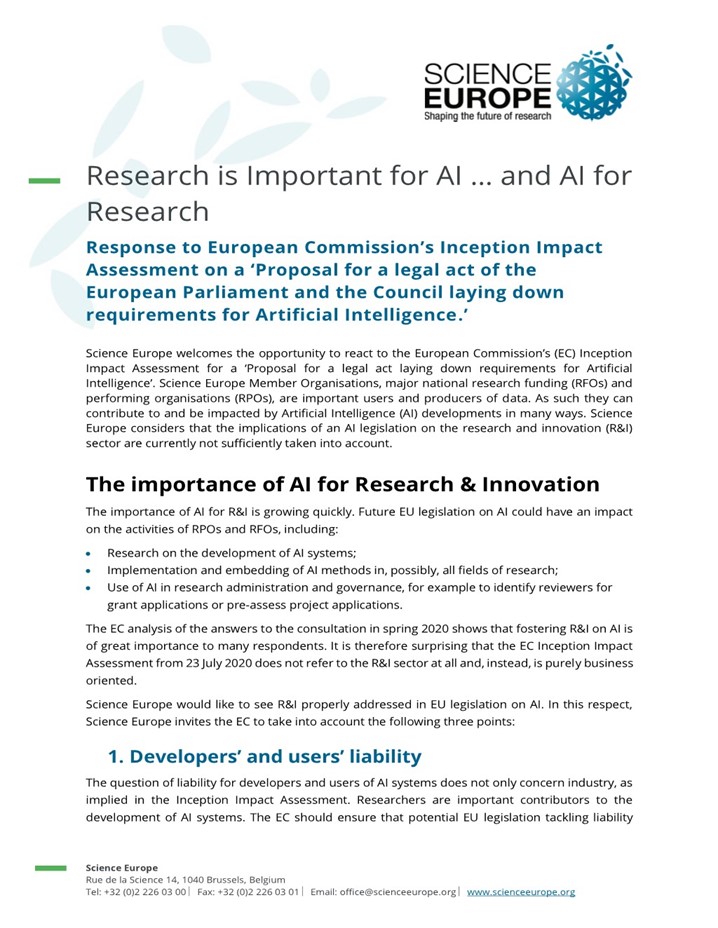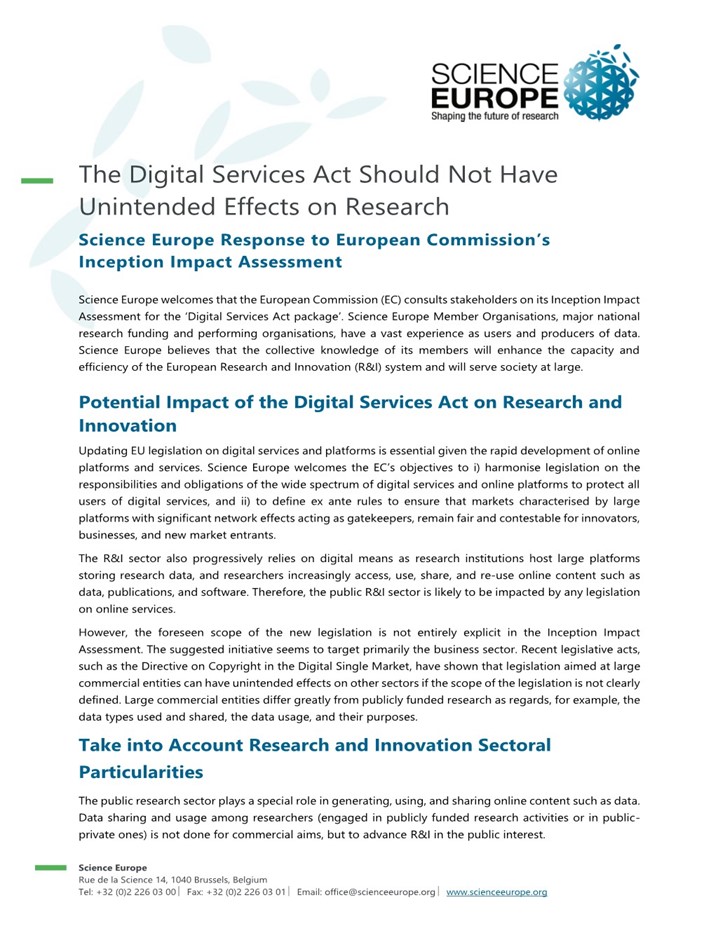Member-only content is available on this page. Please log in to view this content.

Our resources
Discover Science Europe’s comprehensive library of resources, including the most recent publications, briefings, and position statements.
46 resource(s) found
Report of High-level Conference 'Unlocking the Power of Science Communication in Research and Policy Making'
This report summarises the High-level Conference on Science Communication organised by Science Europe, FWO, and FNRS. The event emphasised the role of science communication, the importance of integrating it into research programmes and policies, and providing support for those engaging in it.
From Ambition To Action: Fostering Research Excellence In Europe - 2023 Annual Report
2023 proved to be another landmark year for Science Europe: building on the achievements of the previous year and setting the direction for new approaches in vital areas of research policy.
Research Matters Open Letter: A call to strengthen research and innovation in Europe
Science Europe has joined other research and higher education organisations in a call to increase and strengthen investment for research and innovation at European and national level and protect R&I budgets, as part of the Research Matters campaign.
Vote for Science: 5 Pledges for Candidates of the European Parliament Elections 2024
In the run up to the European Parliament Elections on 6-9 June 2024, Science Europe has launched our 'Vote for Science' Campaign advocating for political support for science research in the EU legislative agenda of the next 5 years. In the interests of securing this support, Science Europe encourages candidates for the European Parliament to consider and commit to 5 pledges to safeguard the future of European research and innovation.
Vote for Science: Factsheet on Science Research in Europe
In the run up to the European Parliament Elections on 6-9 June 2024, Science Europe has launched our 'Vote for Science' Campaign advocating for political support for science research in the EU legislative agenda of the next 5 years. As part of our campaign, we've created a factsheet offering a look at the state of science research in Europe, to help voters in understanding how we are doing in supporting science across the areas of our 5 Pledges for Candidates.
Science Europe's Initial Position: European Commission's Public Consultation on the White Paper on R&D on Dual-Use Technologies.
This initial position by Science Europe on ‘Dual-Use’ Research, was submitted on 30 April as a response to the European Commission Consultation on the White Paper on ‘Options for enhancing support for research and development involving technologies with dual-use potential’, following a preliminary discussion with our Governing Board and prior to a broader discussion with our Member Organisations in the context of our upcoming General Assembly Meeting.
Science Europe Feedback on the implementation of the GDPR
Science Europe has provided feedback to the European Commission on the implementation of the General Data Protection Regulation (GDPR) through the call for evidence opened for the 2025 GDPR report.
Research at the Heart of Europe’s Ambition – 2022 Annual Report
In 2022, Science Europe made significant contributions in various areas, including research culture, research assessment, open science, EU framework programmes, the green and digital transition, and science communication.
Science Europe 2021 Annual Report
For Science Europe, 2021 was a very important year: the association celebrated its 10th year of existence. Founded in 2011, it has grown into a respected and influential voice in the European research policy debate. Moreover, we published a new Strategy Plan for 2021–2026, which maps our collective objectives and sets a specific yet flexible action framework over the next five years.
A Digital Legislation That Works for Science?
Ahead of discussions on 4 July in the European Parliament, Science Europe highlights its concerns regarding the potential impact of the Digital Services Act on the research and education sectors and the legal uncertainty that it is likely to create.
Statement on the exemption of not-for-profit educational and scientific repositories, digital archives, and libraries from the Digital Services Act
Research organisations, libraries, repositories, and university networks call for the the exclusion of not-for-profit repositories, digital archives, and libraries from the obligations of the Digital Services Act.
Research Plays an Essential Role in Public Interest Data Use
Science Europe Response to the European Commission’s Consultation on a Future Data Act
A set of European Digital Principles: Essential, but a Broader Approach is Needed
Science Europe Response to the European Commission Consultation on European Digital Principles
Right Balance between Fostering Innovation and Trust Essential also for the Research Sector
Science Europe Response to the European Commission Inception Impact Assessment: Adapting Liability Rules to the Digital Age
Which Role for Research in the Future Data Act?
Science Europe Response to the European Commission Inception Impact Assessment for a Data Act.
Digital Services Act – Argumentation for an Exemption for Not-for-profit Scientific and Educational Repositories
Science Europe joins forces with other stakeholder organisations to argue for an exemption for not-for-profit scientific and educational repositories in the Digital Services Act (DSA). Please note this is for internal use only as this document was sent to a selected number of Parliament and Council representatives to advocate for the exemption.
Q&A: Aligning Research Data Management Across Europe
On 27 January 2021, Science Europe presented the second, extended version of its Practical Guide to the International Alignment of Research Data Management during a webinar with more than 260 participants.
As it was unfortunately not possible to address all questions participants asked during the launch event, this document presents the answers to the questions asked to both Science Europe and the webinar speakers.
Practical Guide to Sustainable Research Data
This Practical Guide provides guidance to ensure the long-term preservation and accessibility of research data. Three complementary maturity matrices provide funders, performers, and data infrastructures with a way to create a common understanding of the approaches needed.
2020 Annual Report
The year 2020 saw a global pandemic attest to the value of science. In the race for COVID-19 treatments and vaccines, Science Europe’s Member Organisations were at the forefront of the global response and our association became more relevant and important than ever.
Commentary on the FAIRsharing Data Repository Selection Proposal
Practical Guide to the International Alignment of Research Data Management - Extended Edition
Developed by experts from Science Europe Member Organisations, this guide aims to align research data management (RDM) requirements across research organisations. Originally released in 2019, it was updated in January 2021 to include guidance to support the evaluation of data management plans (DMPs).
Response to the EDPB Consultation on the concepts of controller and processor in the GDPR
In its response to the European Data Protection Board (EDPB) Science Europe welcomes the detailed guidance on identifying whether controllership is joint or separate within a given collaboration and identifying an appropriate legal form to establish an agreement. However further clarification through the EDPB Guidelines would be helpful for public research organisations.
Response to the European Commission's Inception Impact Assessment on Artificial Intelligence
In its response to the European Commission, Science Europe highlights that future EU legislation on AI needs to strike the right balance between safeguards for users and developers of AI systems, and a legal environment that fosters R&I.
Response to the European Commission's Inception Impact Assessment on the Digital Services Act
In its response to the European Commission, Science Europe highlights that the foreseen scope of the new legislation is not clearly defined and greater clarification should be introduced to ensure that the Digital Services Act does not have unintended effects on research.

